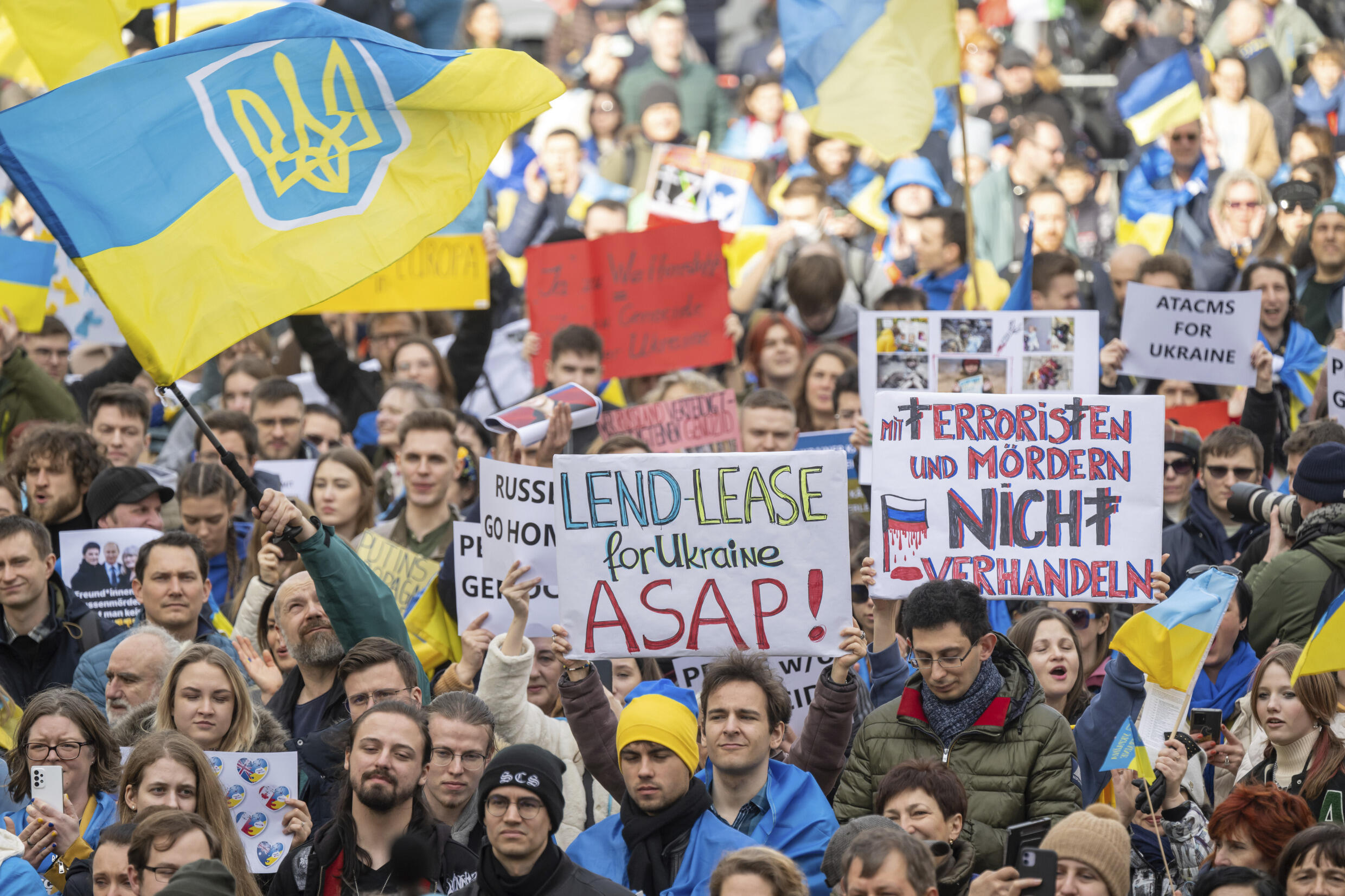Few countries have broken as many taboos as Germany in response to the impact of the war in Ukraine. Last year, German Chancellor Olaf Scholz promised a “change of era”. Since then, many of the government’s most controversial decisions have had Ukraine at the center of the debate. German arms policy has been one of them. Our correspondent in Berlin, Thomas Sparrow, explains the details.
The German Parliament in Berlin is a quiet place on Sundays. In its corridors, its offices, tunnels and restaurants, one does not feel the same energy or the same frenzy as when the more than 700 parliamentarians are in session.
There are only a few events that break that calm and one of them occurred on February 27 of last year.
Three days after the Russian invasion of Ukraine, the new German Chancellor Olaf Scholz – who had not been in power for even three months – stepped up to the podium in plenary and delivered a speech which laid the foundations for very profound changes in German political culture.
At that extraordinary meeting of the Bundestag, in his first sentence after the formal greetings, Scholz spoke of ‘Zeitenwende’, a powerful word meaning “change of era” and which has been deeply linked to the chancellor ever since.
Zeitenwende, in fact, was chosen as the word of the year in Germany.

In that speech, the foreign minister promised to revitalize the armed forces with a special fund of 100,000 million euros and increase its defense spending to reach 2% of GDP.
For any country this would be a significant change, but for Germany, with the wounds of its recent history, it is an enormous challenge.
Germany, in the postwar period, had learned to disdain military leadership. Her power was more based on her economy and pacifist diplomacy than on her war tanks.
The Bundeswehr, as military forces are called, had progressively reduced in size and had found itself riddled with problems: from lack of ammunition to damaged vehicles and excessive bureaucracy.
Scholz, therefore, was basically promising a different course. Or as the magazine put it The Economist“a new Germany,” a country that was awakening because of the war in Ukraine.
progressive changes
That awakening, however, has not been easy. Germany, after all, is not a country that traditionally changes quickly: its political culture is based on agreements, on the search for compromises, on guaranteeing stability.
And that takes time, especially on issues as sensitive as his military role.

This is also evident in public opinion. He 52% of Germans said last year that they would prefer Germany to continue to act moderately in international crises. And a survey this month revealed that the 59% it has no confidence in its military forces.
But in addition to the structural challenges, Scholz’s plan has also had more concrete political problems.
His defense minister, Christine Lambrecht, charged with implementing that military modernization, made so many headlines for her false starts that she resigned in January.
Weapons to war zones
His successor, Boris Pistorius, had to quickly assume functions and, above all, he had to deal with an issue that shakes Germany’s political traditions.
It is about of sending arms to a warin this case Ukraine.
Only in counts exceptions Germany has agreed to send weapons to conflict zones. Its policy continues to be very restrictive and this is evident in the difficulties the government has had in supporting Kiev militarily.
Few here forget that, just before the Russian invasion in February, Germany barely promised to send Ukraine 5,000 helmets, which generated strong international criticism and ridicule.
Since then, the German government has changed. His critics say that he acts slowly and only under international pressure, but the truth is that Chancellor Scholz took a step that few thought possible by authorizing the shipment of war tanks to Ukraine.
Germany, in fact, is one of the countries that more military aid has destined kyiv.
Economic dependence
Another area in which Germany has changed is in its relations with Russia, a country that Berlin viewed as both a political rival and an economic partner.
In fact, before the war, Germany had increasingly deepened its energy relationship with that country. Warnings from Eastern Europe and the United States of a dangerous dependency had had little effect.
But when the war began, Germany was left vulnerable: Russia practically had in its hands the possibility of turning off the energy tap on Berlin.
German President (and former Foreign Minister) Frank-Walter Steinmeier acknowledged political mistakes and admitted that the government should have taken the warnings more seriously.
The chancellor and his cabinet, for their part, began to take measures to reduce that dependency, diversify their energy sources and fill up gas reserves.
It has been a relatively successful process, although there have also been problems. The economy suffered from this new reality and energy prices temporarily skyrocketed.
In addition, the decision to reactivate coal plants due to the energy crisis raised doubts about the climate commitment of a country that, according to Scholz himself, wants to achieve climate neutrality by 2045.

These issues have made a dent in the popularity of the Government. A survey this month revealed that 68% of the country is worried about a possible deterioration of the economy.
And only 36% support the government’s course in its political decisions on the war in Ukraine.
One year after Scholz’s speech about the new era, about the ‘Zeitenwende’, it is clear that, in many ways, Germany has been transformed.
But it is also evident that in this change of direction there is still a long way to go.









